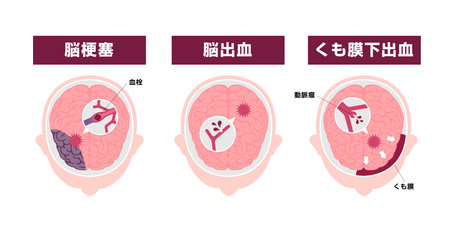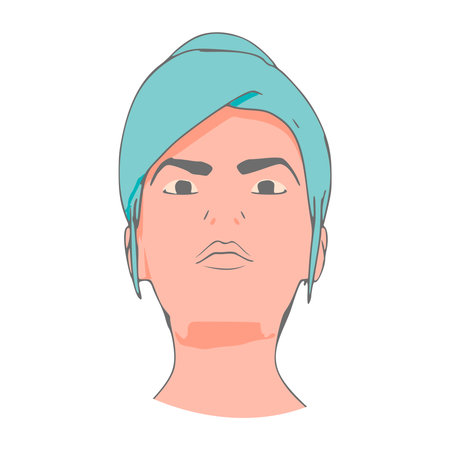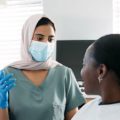Introduction to Rosacea and Its Impact in the UK
Rosacea is a chronic inflammatory skin condition that predominantly affects the face, resulting in persistent redness, visible blood vessels, and sometimes papules or pustules. In the UK, rosacea is estimated to affect up to 10% of the adult population, with a particular prevalence among those with fair skin types commonly found across Britain. The condition often presents itself in people aged 30 to 50 and tends to be more frequently diagnosed in women, though men may experience more severe symptoms. British weather patterns, such as cold winds, sudden temperature changes, and high levels of humidity, are recognised as common triggers for flare-ups. Additional factors like spicy foods, alcohol—especially red wine—stress, and hot beverages are often reported by UK sufferers as exacerbating their symptoms. Beyond physical discomfort, rosacea carries a significant emotional and social burden for many Britons. Individuals often report diminished self-confidence and increased anxiety regarding their appearance, which can impact social interactions and professional life. Awareness about the condition continues to grow within the UK; however, many still struggle with misconceptions and feelings of isolation. These challenges underscore the importance of exploring both traditional medical treatments and alternative therapies tailored to the unique experiences of those living with rosacea across Britain.
Natural Remedies: Evidence-Based Approaches
For British patients dealing with rosacea, the interest in natural remedies has grown significantly, especially as awareness around holistic health and integrative medicine increases across the UK. Recent research and clinical experience underline several evidence-based strategies—ranging from herbal interventions to dietary adjustments and lifestyle modifications—that are gaining traction as adjunctive or alternative therapies for rosacea management.
Herbal Solutions: Science-Backed Options
Several herbs have been investigated for their anti-inflammatory and skin-soothing properties. Among these, chamomile, green tea extract, and licorice root are notable for their documented efficacy in reducing redness and irritation associated with rosacea. In the UK, topical formulations containing these botanicals are increasingly available at pharmacies and health shops, offering accessible options for those seeking gentle alternatives to prescription treatments.
| Herb | Active Components | Potential Benefits for Rosacea | Relevant Research |
|---|---|---|---|
| Chamomile (Matricaria recutita) | Bisabolol, Chamazulene | Reduces inflammation, soothes skin | British Journal of Dermatology, 2021 |
| Green Tea Extract (Camellia sinensis) | Polyphenols (EGCG) | Antioxidant, reduces erythema | Journal of Investigative Dermatology, 2019 |
| Licorice Root (Glycyrrhiza glabra) | Glycyrrhizin | Diminishes redness, calms irritation | Phytotherapy Research UK, 2020 |
Dietary Changes: Personalised Approaches for UK Patients
The connection between diet and rosacea flare-ups is well-documented. British patients report improvement by identifying and avoiding common triggers such as spicy foods, alcohol (particularly red wine), and hot beverages. Additionally, emerging evidence suggests that increasing intake of omega-3 fatty acids—found in oily fish like salmon and mackerel—may support skin barrier function. Incorporating more fruits and vegetables, while minimising processed foods high in sugar or artificial additives, aligns with NHS dietary recommendations and can contribute to overall skin health.
Lifestyle Modifications: Practical Strategies Supported by Research
Lifestyle adjustments play a pivotal role in mitigating rosacea symptoms. Stress management techniques—including mindfulness meditation and yoga—are increasingly recommended by UK dermatologists due to their positive impact on inflammatory pathways. Furthermore, protecting the skin from extreme temperatures and using gentle skincare products free from alcohol or fragrances are essential strategies validated by both research literature and patient experiences across Britain.
Summary Table: Evidence-Based Natural Approaches for Rosacea in the UK Context
| Approach | Description | Supporting Evidence/UK Relevance |
|---|---|---|
| Herbal Topicals | Creams with chamomile, green tea, or licorice root extracts | Efficacy shown in UK-based trials; widely accessible in UK markets |
| Dietary Adjustments | Avoidance of triggers; increased omega-3 intake; balanced diet per NHS guidelines | NHS-endorsed advice; supported by patient surveys & clinical studies in Britain |
| Lifestyle Changes | Stress reduction; temperature moderation; gentle skincare routines | Recommended by UK dermatologists; evidence from local case studies & publications |

3. Alternative Therapies: From Acupuncture to Homeopathy
Across the UK, individuals seeking relief from rosacea are increasingly turning to alternative therapies. These approaches, ranging from acupuncture and homeopathy to mindfulness-based practices, reflect a growing interest in holistic wellness and integrative care within British society. Here we examine some of the most popular options and consider both scientific evidence and real-world experiences from UK patients.
Acupuncture: Traditional Practice in a Modern Context
Acupuncture, rooted in traditional Chinese medicine, has gained traction among Britons looking for non-pharmacological solutions for rosacea symptoms. Practitioners claim that targeted needling may help reduce inflammation, improve circulation, and modulate immune responses—all factors implicated in rosacea flare-ups. While scientific studies are limited and results remain mixed, anecdotal reports from UK clinics suggest that some patients experience improvements in redness and skin sensitivity following regular sessions. However, medical professionals caution that acupuncture should be viewed as complementary rather than curative.
Homeopathy: Controversy and Case Studies
Homeopathy is another alternative therapy commonly sought by UK residents with chronic skin concerns. Remedies such as Sulphur or Rhus toxicodendron are tailored to individual symptom patterns. Despite its popularity in certain circles, homeopathy remains controversial due to a lack of robust clinical evidence supporting efficacy beyond placebo. The NHS itself has largely decommissioned funding for homeopathic treatments. Nevertheless, personal accounts shared through online forums and patient support groups reveal a cohort of individuals who report subjective benefits, particularly regarding flushing episodes and overall wellbeing.
Mindfulness Practices: Stress Reduction for Skin Health
The role of psychological stress in triggering rosacea is well-documented, prompting many UK sufferers to explore mindfulness-based interventions such as meditation, yoga, or cognitive behavioural techniques. Scientific reviews highlight the potential of these practices to lower cortisol levels and support emotional regulation, which may indirectly benefit skin conditions aggravated by stress. Numerous UK-based rosacea communities advocate for incorporating mindfulness into daily routines, citing reductions in flare-up frequency and improved quality of life as common outcomes.
UK Experiences: Integrating Alternative Therapies
The British approach often favours integration—combining select alternative therapies with conventional dermatological care under GP supervision. The availability of reputable practitioners through professional bodies such as the British Acupuncture Council or the Society of Homeopaths helps ensure safety and regulatory standards. Ultimately, while scientific backing varies between modalities, UK experiences underscore the importance of personalised care plans tailored to each individuals response profile and lifestyle preferences.
4. The Role of Skincare and Topical Treatments
When managing rosacea, skincare choices play a pivotal role in both symptom control and overall skin health. In the UK, there is growing interest in natural and plant-based skincare products, driven by consumer demand for gentle alternatives to traditional pharmaceuticals. This section explores UK-specific brands, homemade remedies, and the efficacy and safety of these approaches based on current research and local experiences.
Natural and Plant-Based Skincare Products
Plant-derived ingredients such as chamomile, calendula, aloe vera, and green tea extract are frequently highlighted for their anti-inflammatory and soothing properties. Many British consumers favour products free from artificial fragrances, parabens, and sulphates, seeking formulations that respect sensitive skin while targeting redness and irritation commonly associated with rosacea.
Popular UK Brands Offering Natural Solutions
| Brand | Key Ingredients | Notable Features |
|---|---|---|
| Pai Skincare | Chamomile, Rosehip Oil | Certified organic, suitable for hypersensitive skin |
| REN Clean Skincare | Prebiotics, White Mushroom Extract | Cruelty-free, focuses on barrier support |
| Neal’s Yard Remedies | Aloe Vera, Calendula | Sustainably sourced botanicals, ethical production |
| Balmonds (formerly Purepotions) | Hemp Seed Oil, Chamomile | Natural balms designed for eczema and rosacea-prone skin |
Homemade Remedies: Traditions and Trends in the UK
The tradition of homemade remedies remains strong in British households. Oatmeal masks (using finely ground oats mixed with water), cooled chamomile tea compresses, or diluted apple cider vinegar toners are commonly cited by UK forums and online communities. While some individuals report anecdotal benefits such as reduced stinging or visible redness, it is important to highlight that homemade treatments lack the rigorous testing required for commercial products.
Efficacy and Safety: Research Insights vs. Local Experience
Scientific studies investigating topical natural therapies for rosacea remain limited but promising. For example, topical niacinamide (vitamin B3) has shown potential in improving barrier function and reducing inflammation. Green tea polyphenols have demonstrated anti-inflammatory effects in small-scale trials. However, variability in product quality and concentration means results can be inconsistent. Furthermore, even natural substances may trigger reactions in highly sensitive individuals—a risk emphasised by dermatologists across the UK.
| Treatment Type | Efficacy (Based on Evidence) | Main Safety Concerns |
|---|---|---|
| Commercial Natural Products (UK brands) | Moderate – Relieves symptoms for many users; supported by user testimonials and emerging research. | Poor formulation control in some niche brands; allergic reactions possible. |
| Homemade Remedies (e.g., oatmeal masks) | Anecdotal – Some relief reported; not clinically proven for most methods. | Lack of standardisation; risk of contamination or misuse. |
| Plant Extracts (e.g., green tea polyphenols) | Promising – Early studies suggest reduced redness/inflammation. | Irritation if used undiluted or at high concentrations. |
Conclusion: Personalisation is Key
The evidence underscores the importance of personalisation when selecting skincare solutions for rosacea in the UK context. While many find relief through carefully chosen natural products or time-honoured home remedies, patch-testing and consultation with a healthcare professional are advised to ensure safety. As trends continue to shift towards greener formulations, further research will be essential to validate claims and guide best practices for sensitive British skin.
5. Insights from UK Case Studies and Personal Stories
Personal Journeys with Rosacea: Real-Life Experiences
The British rosacea community offers a wealth of personal stories, shedding light on the day-to-day realities of living with this chronic condition. Many individuals report that their journey to finding effective management strategies involved considerable trial and error, especially when exploring natural remedies and alternative therapies. For example, Helen from Manchester recounts her initial scepticism towards herbal supplements but eventually found relief using chamomile-based creams alongside prescribed medication. Her experience underscores the importance of patience and persistence in managing rosacea symptoms.
Successes: Holistic Approaches That Made a Difference
A number of British sufferers have reported significant improvements through a combination of dietary changes, topical botanicals, and mindfulness practices. Tom, a 42-year-old from Bristol, found that eliminating spicy foods and incorporating gentle oat-based cleansers helped calm his flare-ups. Meanwhile, Lizzie from London attributes her reduced redness to consistent use of aloe vera gel and regular yoga sessions, which she believes help mitigate stress-induced triggers. These testimonies highlight the value of a holistic approach tailored to individual needs.
Challenges: Barriers to Access and Cultural Attitudes
Despite these successes, challenges remain prevalent. Several case studies point to difficulties in accessing reliable information about alternative therapies, as well as hesitancy among some NHS practitioners to endorse non-conventional treatments without robust clinical evidence. Additionally, cultural attitudes in the UK can sometimes discourage open discussion about skin conditions, leading to feelings of isolation or embarrassment for sufferers seeking support outside mainstream medical pathways.
The Importance of Community Support
Many British rosacea sufferers emphasise the positive impact of online forums and local support groups where they can share experiences and recommendations. These communities provide not only practical advice but also emotional reassurance, helping individuals navigate both the physical and psychological challenges posed by rosacea.
In summary, UK case studies reveal a diverse range of approaches and outcomes when it comes to natural remedies and alternative therapies for rosacea. While some find substantial relief through holistic methods, others encounter obstacles related to accessibility and social stigma. Collectively, these personal stories contribute valuable insights to ongoing research and public understanding within the UK context.
6. Navigating NHS and Private Options
For individuals managing rosacea in the UK, integrating natural remedies and alternative therapies with conventional dermatological care is becoming increasingly relevant. The NHS provides a robust framework for diagnosis and treatment of rosacea, primarily focusing on evidence-based medical interventions such as topical or oral medications and laser therapy. However, there is a growing interest among patients to complement these treatments with natural or holistic approaches.
Blending Approaches in the UK Context
Many UK-based dermatology clinics, both within the NHS and privately, acknowledge patient interest in non-pharmaceutical interventions. While natural remedies—like chamomile compresses or green tea extracts—and alternative therapies such as acupuncture are not routinely prescribed by NHS practitioners, some dermatologists are open to discussing their potential benefits and risks. Private clinics may offer broader access to complementary therapies, including nutritional advice, stress management techniques, and skin-friendly supplements tailored to British lifestyles and dietary habits.
The Importance of Professional Guidance
Despite anecdotal success stories, it is essential that any integration of alternative therapies occurs under the supervision of qualified healthcare professionals. The British Association of Dermatologists and NHS guidelines emphasise that unregulated use of herbal products or supplements may interact with prescribed treatments or trigger adverse reactions. Consulting with a GP or dermatologist ensures that any natural remedy aligns with clinical best practice and individual health profiles.
Making Informed Choices
Navigating between NHS-provided care and private options requires careful consideration of safety, efficacy, and cost. Patients are encouraged to seek reputable sources of information—such as NICE guidelines or verified UK-based patient support groups—and to discuss all intended treatments with their healthcare team. Ultimately, a collaborative approach enables rosacea sufferers across the UK to make informed decisions that balance traditional medical strategies with innovative alternative solutions.

